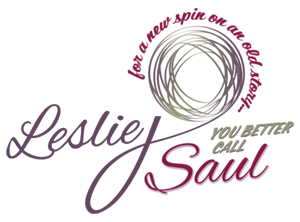Practicing Empathy in Your Professional Life
In my previous post, I talked about empathy: why it’s so important during these difficult times, how it helps others, and what the three types of empathy are. Here I would like to discuss the distribution of empathy; how to lead with empathy; how to act with empathy.
Understanding the Distribution of Empathy
Empathy is a primordial human trait – as is altruism.
Unfortunately for many of us the inherent psychological and biological necessity to share and share alike is not being met. Previously, we as a people, relied on each other to build, nourish, and grow as a community. The give and take of these acts have always been mutually beneficial. The receiver getting what they need and the giver receiving good feelings and the drive to repeat those actions.
Today, with more and more communities and individuals suffering, it’s almost impossible not to feel the desire to give and even to receive. However, with the bustling online metropoles of social media, we are reminded that there are so many who don’t feel what we feel. But why, and how? Turns out, it’s science!
Empathy is genetic and, like everything with genetic coding, it evolves and changes through breeding. Low-empathy parents literally breed low-empathy children and high-empathy parents breed high-empathy children. And thus the distribution of empathy is like every other human trait.
You are not alone in wondering how so many can dismiss the needs and feelings of others, but remember to understand those who do are not alone either.
Leading with Empathy
Some of you may find yourselves in positions of power during these highly stressful and uncertain times. You may be a manager, a community leader, or a business owner and you may find that leading your team, neighbors, or employees is becoming more of a struggle with each passing day.
Not only are you in the middle of a national health crisis, an unstable workforce, and a decaying economy you’re also managing your own work-life challenges. It feels harder because it is. Take the time to practice some personal and professional self-care. Practicing will become modeling and modeling self-care positively affects those around you.

Acting with Empathy
Extreme stress – which many are experiencing right now – can affect how we lead (or follow), how we communicate, and how we act. Our way of life has been greatly impacted by significant disruptions to our health, socializing, and livelihood. Acting with empathy will allow you to provide a sense of normalcy and stability.
Here are four ways you can act with empathy in your professional role:
- Support Emotional Health
Show your sensitivity to the impact of the world around you and your employees or coworkers. Provide comfort. Ask how people are doing. Offer check-ins. Reinforce your sympathy. - Model Healthy Work Habits
Set the example through guidance and behavior during difficult times. Stay up-to-date. Provide outside resources. Define boundaries. Utilize PTO. - Promote Work-Life Balance
Display and integrate your own work-life obligations. Create flexible deadlines. Prioritize health and wellness. Put family first. - Practice Self-Care
Practice makes perfect and self-care is a solid remedy for the overwhelming pressures of today. Take a break. Read a book. Learn something new. Be gentle with yourself.
Remember…
At some point, the pandemic will end; the economy will rebound; the workforce will stabilize; 2020 will end. Our lives will go back to “normal”, but everyone you encounter will remember how you responded and treated them during a year-long crisis. Now is the time to focus on kindness and altruism. Tap into your lizard brain, go primal, help people for the sake of helping them. Show up and listen. Social distancing doesn’t have to mean emotional distancing.
Ask the tough question: How are you?
Hear the tough answers.
Rinse.
Repeat.
TABLE OF CONTENTS









